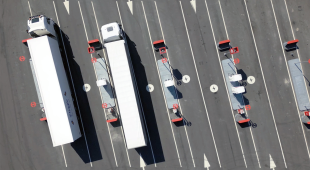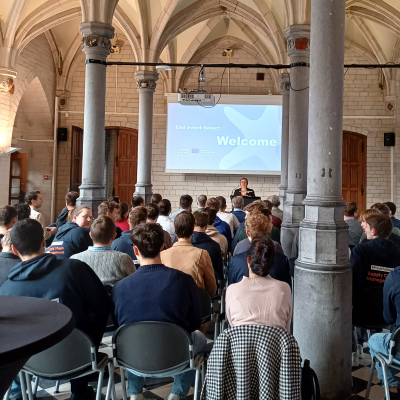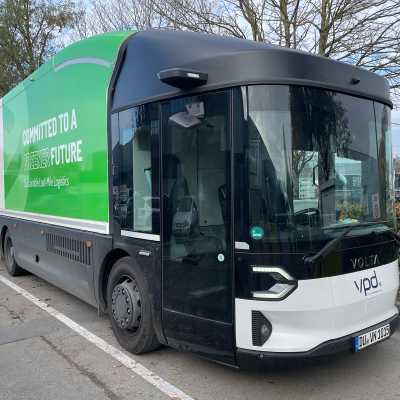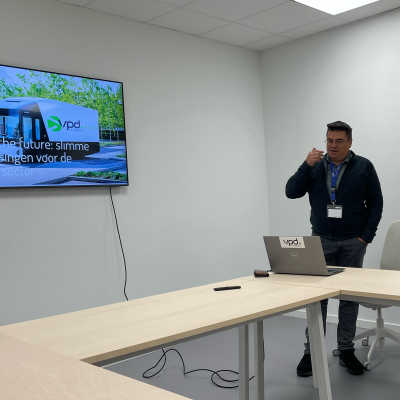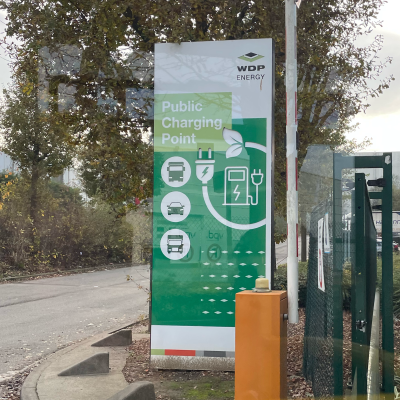November 13 the SELECT project gathered in the city of Mechelen with a broad audience ranging from industry representatives and politicians to master students in logistics. Findings, learnings and inspiration from participating cities and regions was collectively presented along with a set of recommendations on how public actors and industry together can accelerate the transition to electrified transports. The audience was also given an orientation by POLIS representatives in the overall context of electrification that initiatives like SELECT exist in. Take part of the recommendations here!
The final conference in the city hall included group exercises to nurture the physical meeting of people and mixing up the crowd facilitating new acquaintances. The afternoon consisted of a much appreciated study visit to VPD Logistics who presented their efforts in meeting customer demand for electrified logistics, showcasing both their own charging infrastructure tied into a local energy system and various electric commercial vehicles.
After the conference the project partners gathered key insights from this conference and from the entire project period. A key deliverable has been to create recommendations for local and regional authorities in terms of interacting with the logistics sector. The main recommendations are:
- Public Communication and Long-Term Planning: Clear and consistent communication of climate goals and regulations by public actors, such as cities, plays a crucial role in driving private-sector action toward electrification. Programs like Stockholm’s Zero Emission Zone (ZEZ) provide clear incentives for electrified vehicles.
- Funding and Incentives: Financial incentives, such as subsidies and tax reductions on charging infrastructure and electricity, are essential for reducing the financial barriers to electrification. Sweden’s regional subsidy program for heavy trucks is a standout example of how such support accelerates adoption.
- Collaborative Governance: Cooperation between public and private actors is vital. Forums, stakeholder engagement initiatives, and cross-sector matchmaking are needed to align interests, share best practices, and create policies that meet the real-world demands of the logistics sector.
- Project Trials and Best Practices: Demonstration projects, such as the eHighway trial in Schleswig-Holstein, showcase the potential of electrification initiatives and provide valuable lessons for scaling up. Best practices need to be shared across regions and countries to foster a collective push towards electrification.
- Adaptation to Local Contexts: Electrification strategies must be adaptable to the specific needs of different regions. Population density and infrastructure requirements vary significantly between, for example, southern and northern Sweden, or between the Netherlands and Lithuania. Thus, local and regional authorities must work closely with businesses to develop tailored solutions.
- Overcoming TCO Challenges: Reducing the Total Cost of Ownership (TCO) for electric fleets remains a significant hurdle. Strategies such as promoting conductive charging, incentivizing off-hour deliveries, and leveraging public procurement can help alleviate this barrier.
How the project partners have worked to identify the recommendations, more details and different kind of measures suitable for accelerating electrification can be found in the full report below.

